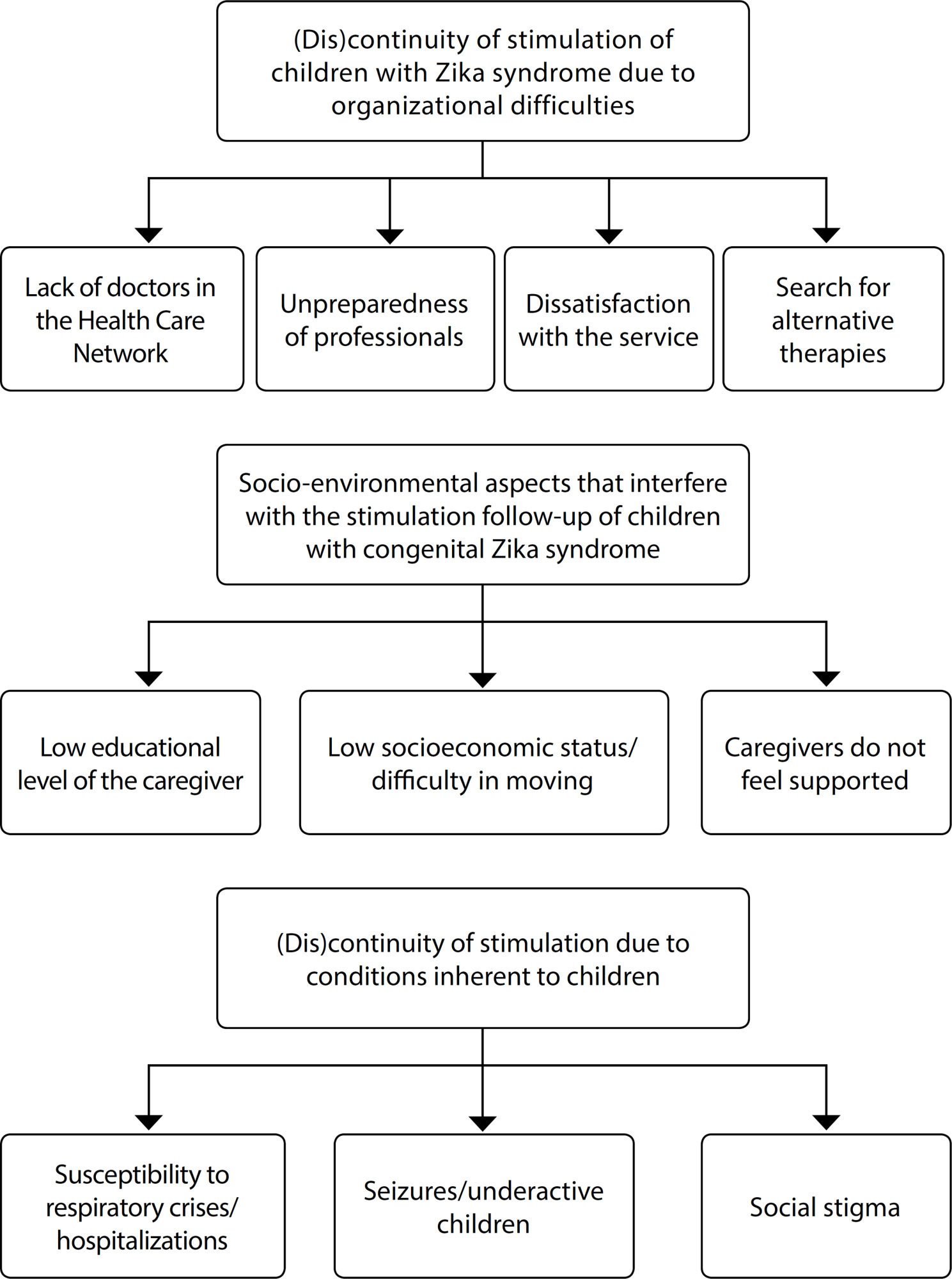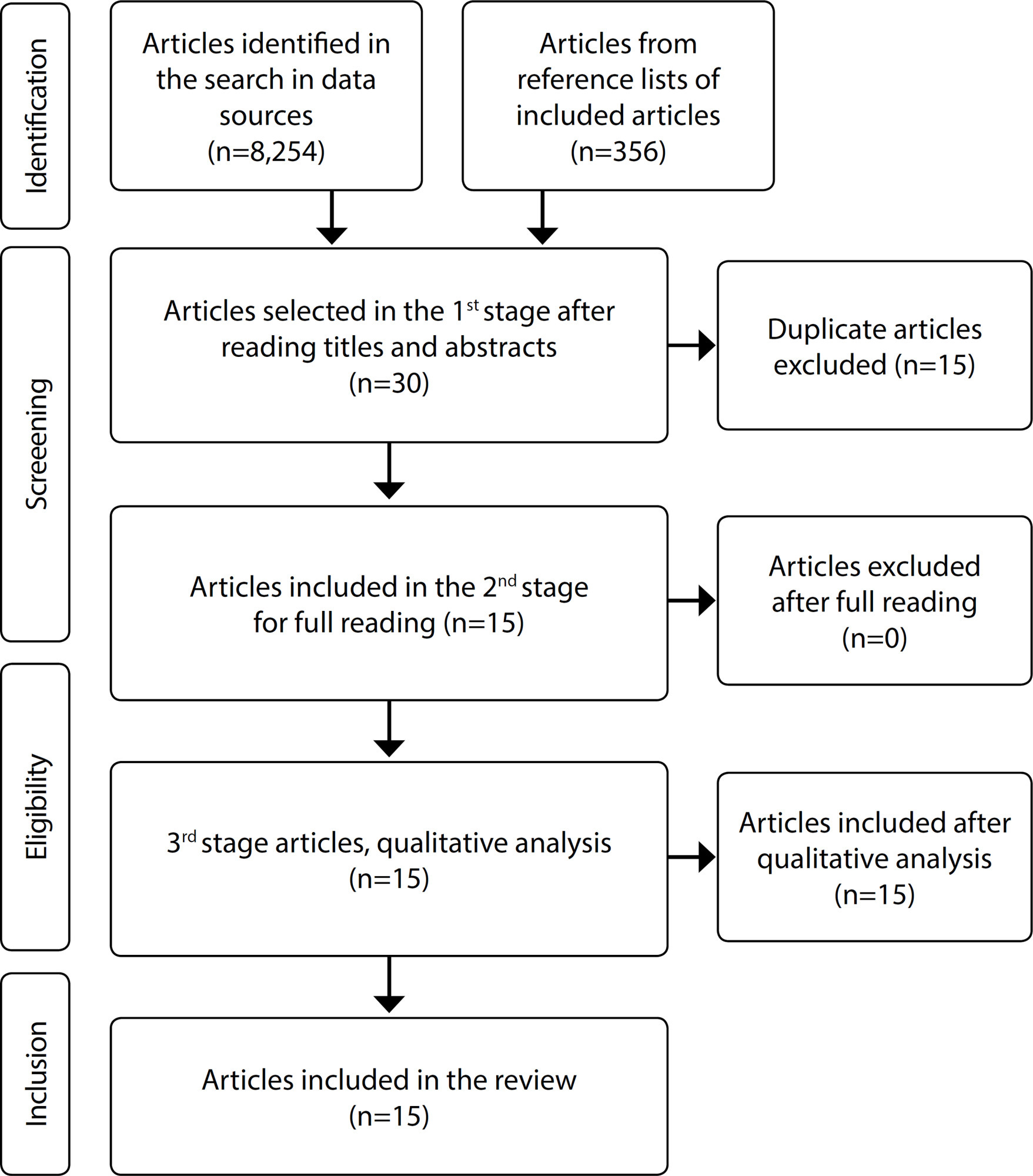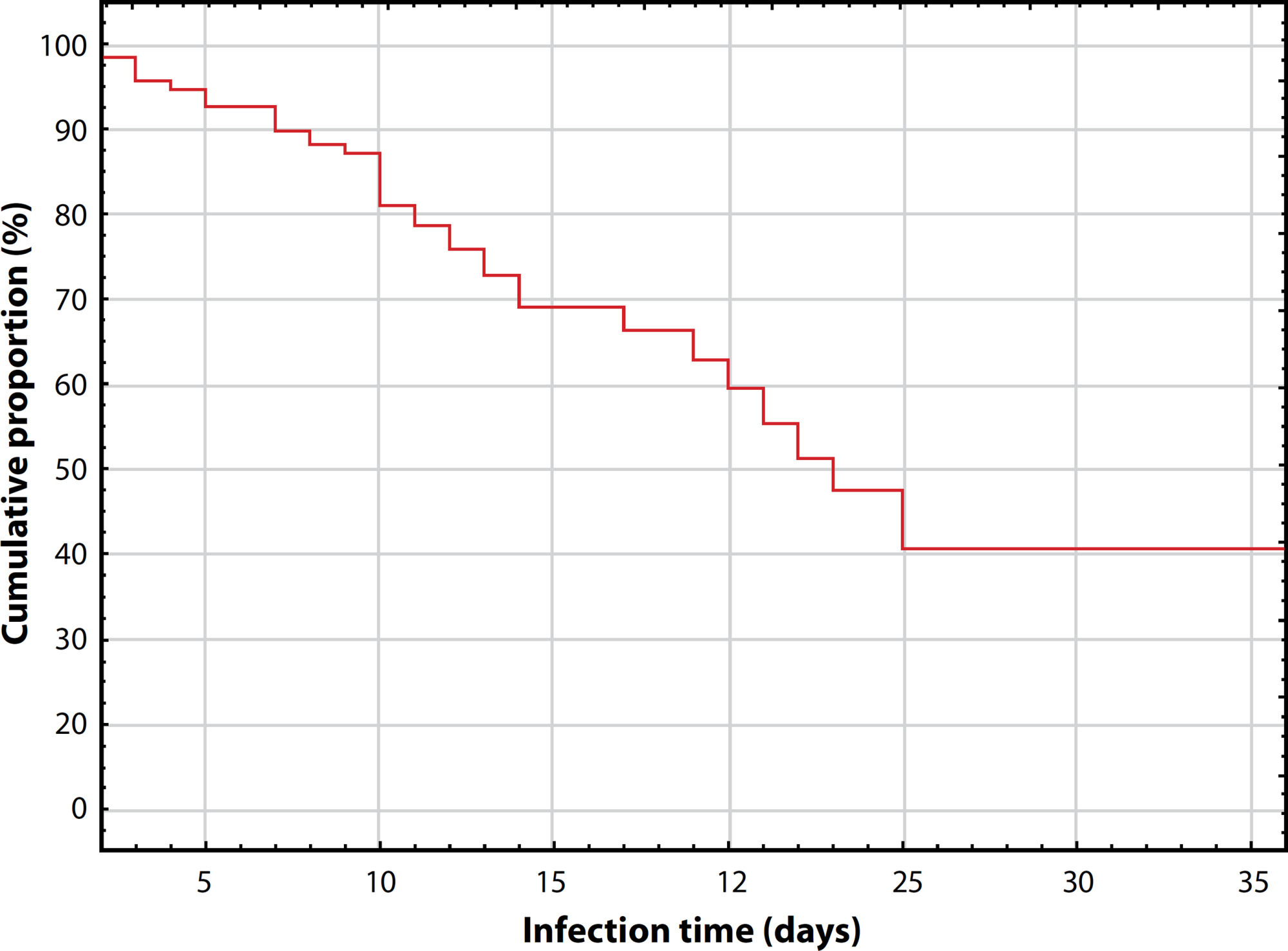-
01-01-2015
Adverse events and safety in nursing care
Revista Brasileira de Enfermagem. 2015;68(1):144-154
Abstract
Adverse events and safety in nursing care
Revista Brasileira de Enfermagem. 2015;68(1):144-154
DOI 10.1590/0034-7167.2015680120i
Views0See moreObjective:
to identify the scientific publications about adverse events in nursing care in adult hospitalized patients and discuss the main adverse events in nursing care.
Method:
Integrative revision with a qualitative approach. The data were collected at LILACS, MEDLINE, BDENF and the library SCIELO and were submitted to thematic analysis.
Results:
three categories were developed: Adverse events in nursing care; The main causes of the adverse events in nursing care; Attitude of nursing professionals in face of errors. The main events were identified in nursing care with emphasis on the medication error, the failure to perform dressings and falls of patients. The importance of instruments was emphasized for notification of adverse events in the institutions. However the fear of punishment on professionals stimulates the underreporting of events.
Conclusion:
it is important to discuss effective prevention strategies that ensure patient safety in healthcare institutions.
-
01-01-2015
Staphylococcus aureus meticilino resistente adquirido na comunidade: um problema mundial
Revista Brasileira de Enfermagem. 2015;68(1):136-143
Abstract
Staphylococcus aureus meticilino resistente adquirido na comunidade: um problema mundial
Revista Brasileira de Enfermagem. 2015;68(1):136-143
DOI 10.1590/0034-7167.2015680119p
Views0Objetivo:
descrever a epidemiologia dos casos de CA-MRSA no Brasil de forma a compreender sua ocorrência, fatores de risco associados e formas de manejo em relação à situação mundial.
Método:
revisão integrativa e para seleção dos estudos utilizou-se as bases de dados: Scopus, Science direct, Isi Web of Knowledge, PUBMED e BVS.
Resultados:
foram identificados dez artigos nacionais que descreveram 21 casos de CA-MRSA principalmente em crianças, adolescentes e adultos com quadro de infecção de pele e tecidos moles evoluindo para infecções graves relacionados ao clone Oceania Southwest Pacific Clone (OSPC) que resultaram em hospitalização.
Conclusão:
apesar do CA-MRSA ser considerado um micro-organismo de relevância mundial verificou-se a escassez de dados publicados sobre sua epidemiologia no Brasil, o que dificultam o delineamento da realidade do país frente ao CA-MRSA.
Keywords:Controle de InfecçõesFarmacorresistência BacterianaInfecções Comunitárias AdquiridasStaphylococcus Aureus Resistente à MeticilinaSee morePlumX Metrics
- Citations
- Citation Indexes: 12
- Usage
- Full Text Views: 43419
- Abstract Views: 1059
- Captures
- Readers: 120
- Mentions
- Blog Mentions: 1
-
01-01-2015
Prevention and non-pharmacological management of pain in newborns
Revista Brasileira de Enfermagem. 2015;68(1):131-135
Abstract
Prevention and non-pharmacological management of pain in newborns
Revista Brasileira de Enfermagem. 2015;68(1):131-135
DOI 10.1590/0034-7167.2015680118i
Views0See moreObjective:
to describe the main non-pharmacological interventions for pain relief in newborns available in Neonatal Intensive Care Unit.
Method:
an exploratory search of the MedLine, Lilacs and Scielo online databases was conducted to retrieve references of studies published from 2004 to 2013.
Results:
several non-pharmacological interventions were shown to be effective, to represent low risk for neonates and to have a low operational cost. The ones most often discussed in the literature were: oral administration of glucose/sucrose, non-nutritive sucking, breastfeeding, skin-to-skin contact, facilitated tucking and swaddling.
Conclusion:
healthcare teams should be familiar with these methods and use them more effectively in Neonatal Intensive Care Unit daily routines, so as to ensure that newborns receive qualified and more human care.
-
01-01-2015
BANFISA e (IN)DICA-SUS na graduação em saúde: o lúdico e a construção de aprendizados
Revista Brasileira de Enfermagem. 2015;68(1):124-130
Abstract
BANFISA e (IN)DICA-SUS na graduação em saúde: o lúdico e a construção de aprendizados
Revista Brasileira de Enfermagem. 2015;68(1):124-130
DOI 10.1590/0034-7167.2015680117i
Views0See moreObjectives:
to analyze the learning built during the matches of the games by students of the subject Gestão de Políticas Públicas em Saúde at the Universidade de Brasília.
Method:
exploratory, descriptive research, in a qualitative approach, with 26 students from various graduation courses in health, using a questionnaire and participant observation.
Results:
participants reinvented rules, related issues addressed in the games to the reality, interacted with colleagues and had fun throughout the match. Comparing the games in relation to ludicity, the BANFISA was more attractive than the (IN) DICA-SUS, although they are complementary.
Conclusions:
learning constructed by the students goes beyond the content of the subject; involve the active participation in group and creativity.
-
01-01-2015
Chinese auriculotherapy to improve quality of life of nursing team
Revista Brasileira de Enfermagem. 2015;68(1):117-123
Abstract
Chinese auriculotherapy to improve quality of life of nursing team
Revista Brasileira de Enfermagem. 2015;68(1):117-123
DOI 10.1590/0034-7167.2015680116p
Views0See moreObjective:
to evaluated the effi cacy of auriculotherapy for improving quality of life and reducing stress in nursing staff.
Method:
single-blind radomizad clinical trail envolving 175 subjects randomized in: Control (G1), Protocol Group (G2) and without Protocol Group (G3). They were evaluated by the Stress Symptoms List and SF36v2 at baseline, after 12 sessions and follow up (30 days), between January and July 2012.
Results:
both intervention groups reduced stress (p <0.05) with greater effect for G3 (d = 1.15). G3 was also higher for improving life quality especially the physical domain (p = 0.05).
Conclusion:
individualized auriculotherapy (G3) had greater effect compared to the protocol auriculotherapy (G2) for reducing stress and improving life quality.
PlumX Metrics
- Citations
- Policy Citations: 1
- Citation Indexes: 16
- Usage
- Full Text Views: 28821
- Abstract Views: 1084
- Captures
- Readers: 145

-
01-01-2015
Adherence to foot self-care in diabetes mellitus patients
Revista Brasileira de Enfermagem. 2015;68(1):111-116
Abstract
Adherence to foot self-care in diabetes mellitus patients
Revista Brasileira de Enfermagem. 2015;68(1):111-116
DOI 10.1590/0034-7167.2015680115p
Views1See moreObjective:
to analyze the self-care of patients with type 2 diabetes mellitus in the Family Health Strategy in Teresina-PI.
Method:
search cross selected by simple random sampling, 331 people with diabetes mellitus. Data collection took place from August to December 2012 with the use of Self-Care Activities Questionnaire with Diabetes and structured instrument for recording information socioeconomic and guidance received by the professional nurse.
Results:
the data revealed that patients have poor adherence to blood glucose monitoring, the physical exercise and foot care, but with good adherence to the medication. Only 38.7% of the sample examined the feet of fi ve to seven days a week. Statistically signifi cant association between self-care activities with their feet and orientations of nurses (p < 0,05).
Conclusion:
that there is need to raise awareness with regard to the development of skills for self-care.
PlumX Metrics
- Citations
- Citation Indexes: 25
- Usage
- Full Text Views: 36634
- Abstract Views: 1875
- Captures
- Readers: 190

-
01-01-2015
Patients with disorders of consciousness: vital, facial and muscular responses to music or messages
Revista Brasileira de Enfermagem. 2015;68(1):102-110
Abstract
Patients with disorders of consciousness: vital, facial and muscular responses to music or messages
Revista Brasileira de Enfermagem. 2015;68(1):102-110
DOI 10.1590/0034-7167.2015680114p
Views1See morePurposes:
to compare vital signs, facial expression and basal electroneurographic signs with measures during stimuli music, message or “silence” in coma patients, vegetative status or sedated; and relating the score of Glasgow Results Scale with the intervention realized.
Method:
a Monoblind Transversal Controlled Clinical Trial to researcher. The distribution, among the three groups, was randomized (experiment with music, experiment with message or control). Two assessments (sessions) were performed with interval of 40 minutes on the same day.
Results:
most of the 76 patients were male, between 18 to 36 years old and hospitalized due to trauma. Statistically signifi cant changes were found in the variables referred to temperature, facial expression, electroneurography and Glasgow Results Scale; more frequent alterations in second session, in coma and vegetative patients, in frontal muscles and in experiment group.
Conclusions:
the facial expression and the electroneurography seem to be more trustworthy variables than vital signs to evaluate consciousness.
PlumX Metrics
- Citations
- Citation Indexes: 7
- Usage
- Full Text Views: 61702
- Abstract Views: 1086
- Captures
- Readers: 61
-
01-01-2015
Prevalence of minor psychiatric disorders in socio-educational agents in the state of Rio Grande do Sul
Revista Brasileira de Enfermagem. 2015;68(1):93-101
Abstract
Prevalence of minor psychiatric disorders in socio-educational agents in the state of Rio Grande do Sul
Revista Brasileira de Enfermagem. 2015;68(1):93-101
DOI 10.1590/0034-7167.2015680113p
Views0See moreObjective:
to determine the prevalence and factors associated with minor psychiatric disorders (MPD) in socio-educational agents.
Method:
it is a cross-sectional study with 381 socio-educational agents the Centers for Socio-Educational Services in the State of Rio Grande do Sul, Brazil. The Brazilian versions of the Scale of Demand-control-social support at work and the Self Reporting Questionnaire-20 have been applied.
Results:
the results showed a prevalence of suspicion MPD of 50.1%. They showed to be related to suspicion of MPD : being female (55.7%), having age up to 44 years old (58.5%), no physical activity (57.4%), do not have time for leisure (75%), make use of medication (61.4%), require medical attention (56.9%) and psychological counseling (72.7%), not being satisfied with the workplace (61.7%) and need for time off from work (65.6%).
Conclusion:
the study provides important data about the mental health of agents, showing the need for the involvement of managers and of the health service of worker’s health in planning actions to promote health of these workers.
PlumX Metrics
- Citations
- Citation Indexes: 3
- Usage
- Full Text Views: 9257
- Abstract Views: 724
- Captures
- Readers: 79
Search
Search in:
Nuvem de Tags
Enfermagem (930)Cuidados de Enfermagem (269)Atenção Primária à Saúde (239)Idoso (208)Educação em Enfermagem (151)Segurança do Paciente (150)Saúde Mental (145)Educação em Saúde (139)Estudos de Validação (131)Qualidade de Vida (104)Tecnologia Educacional (100)Promoção da Saúde (99)COVID-19 (91)Criança (91)Família (87)Enfermagem Pediátrica (86)Saúde do Trabalhador (86)Adolescente (85)Saúde Pública (82)Estudantes de Enfermagem (77)










